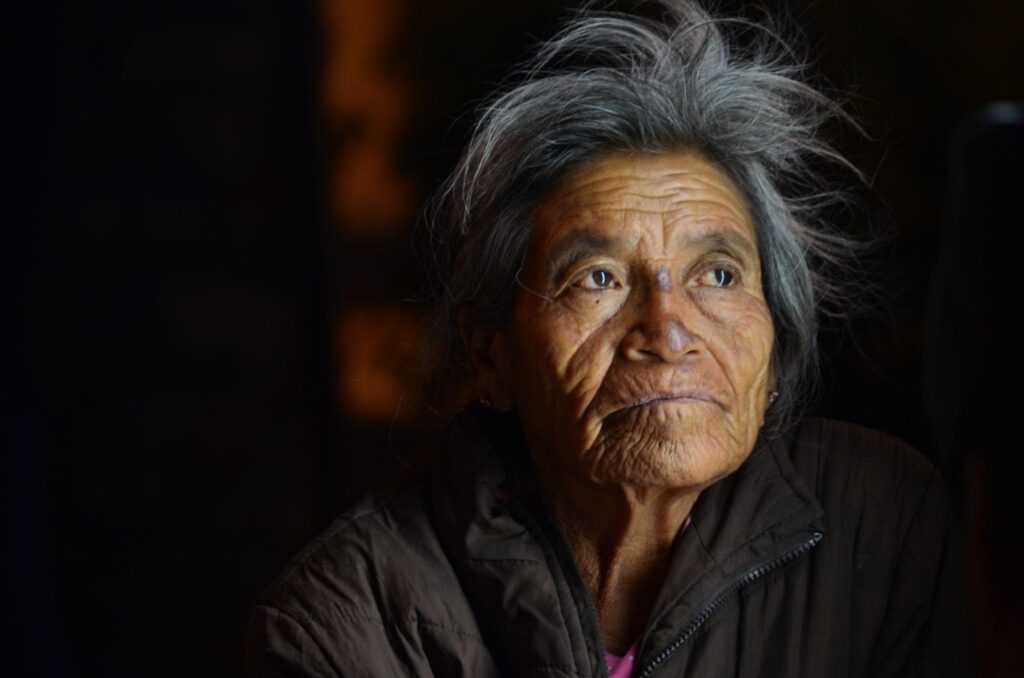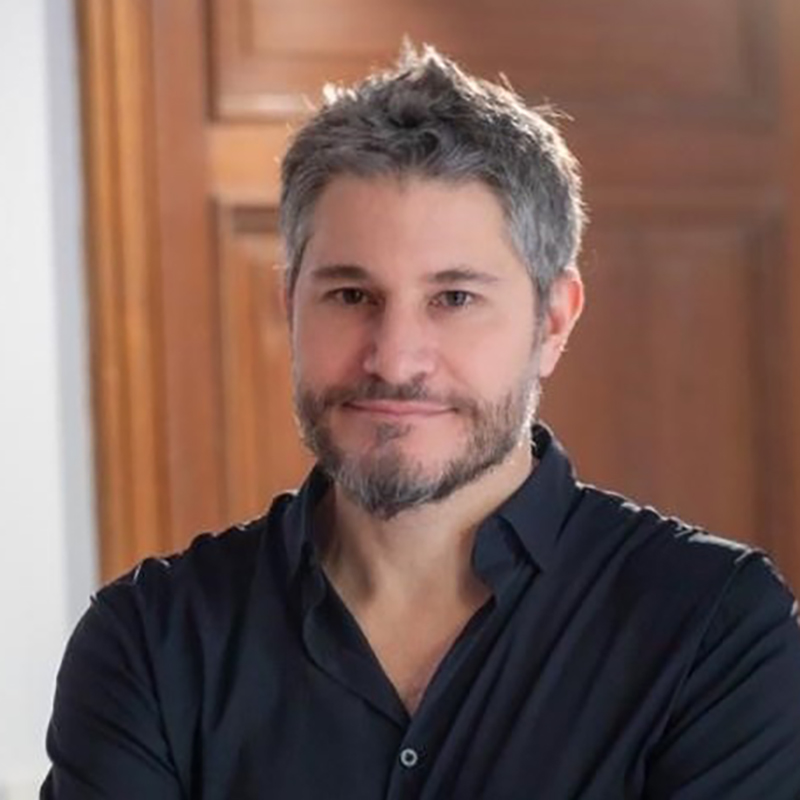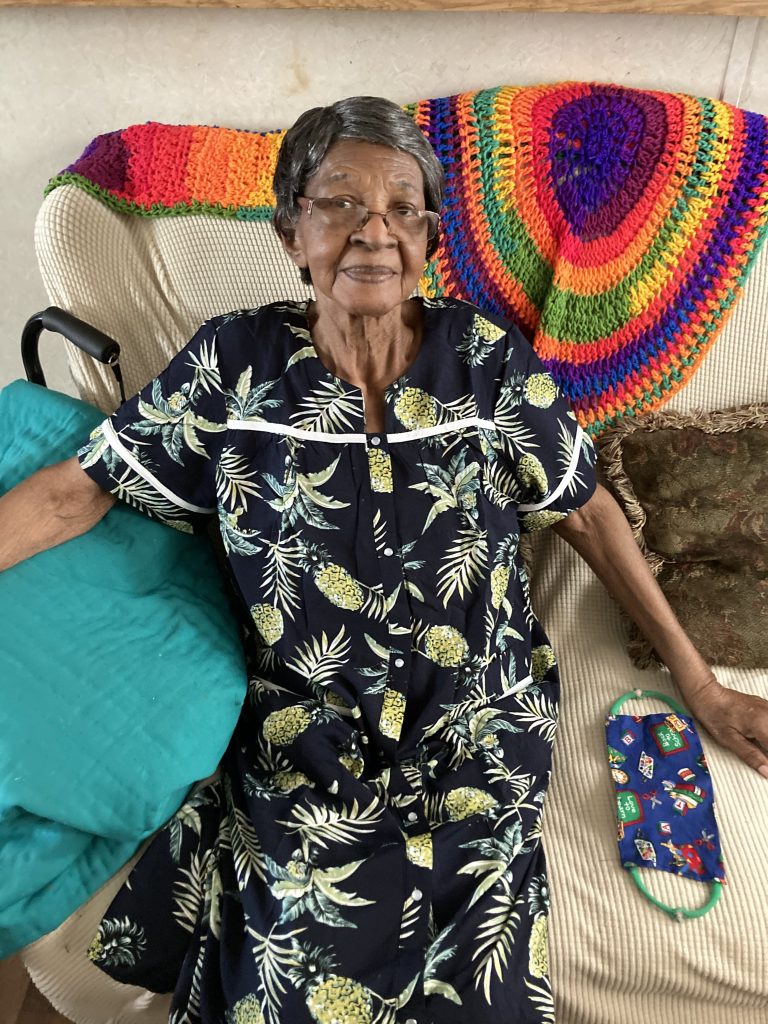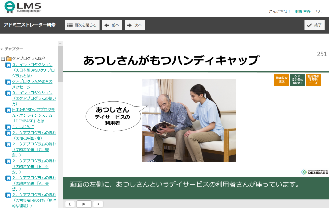
In the Academy Award-winning film The Father, we see Anthony Hopkins’ character struggling with symptoms of dementia. He repeatedly loses sense of space and time, while attempting to make sense of what’s going on. In one scene, he doesn’t recognize his own daughter when she comes home from the shops , repeatedly asking her, “where is my daughter?”
In the film, along with the main character’s struggles and inner turmoil, we see the toll taken on his daughter. After this encounter in the hall with her father, she is visibly distraught over the fact that her own father didn’t recognize her. She acts as her father’s main carer throughout the film (his relationship with other carers becoming too tumultuous) and the stress of this is displayed in the daughter’s character. The film has been praised for its realistic portrayal of the dementia caregiving burden.
The film is situated in London. Now, let’s transport ourselves to another part of the globe, specifically to Latin America and the Caribbean countries (LACs), where caregivers are facing serious issues that further exacerbate the burden of caring for someone with dementia.
Dementia in Latin American and the Caribbean countries (LACs)
Population age in LACs is increasing, with demographic structure fast approaching that of developing countries. This increase correlates with a surge in people with dementia, as advanced age is a risk factor for developing dementia.
Naturally, this rise results in a higher need for caregivers for people with dementia. Caregivers regularly face stigma, financial costs, gender bias, and lack of support from government policies in LACs. LACs have one of the highest ratios of caregiver burden in the world, and such issues have been further exacerbated by the COVID-19 pandemic.

What is caregiver burden?
Caregiver burden is the stress experienced when caring for a chronically ill person, caused by factors such as the physical tasks, emotional demands, and restricted ability to socialize.
Current issues facing caregivers of people with dementia in LACs
In LACs, caregivers of people with dementia exhibit poorer mental health and quality of life in comparison to developed regions, facing issues such as:
- Overbearing financial costs: Most caregivers in LACs are family members of the person with dementia, many of which have had to quit paid work in order to dedicate their time entirely to caring, leading to reduced income and psychological strain. Over time, it can lead to financial instability and multigenerational poverty.
- Gender bias: Women typically take on caregiving tasks of family members or friends over men, and are thus disproportionately prone to the higher psychological and economic burdens of caring than men.
- Stigma: There is substantial stigma associated with dementia in LACs. Dementia is not typically understood as a health issue requiring medical aid. Instead, it is merely thought of as a natural consequence of ageing. Thus, dementia is often diagnosed late, or not at all.
- COVID-19 pandemic: The pandemic magnified issues faced by caregivers of people with dementia, , delaying diagnosis and further exacerbating the burden they carry. Contagion risk of COVID-19 is increased if caregivers have to leave home to find more work, and the drastic reduction in availability of medical appointments has compromised care for dementia and other comorbid conditions.
- Lack of government policies: Regional policies for long term care of people with dementia are virtually non-existent in LACs.
This is why we showcase possible short-term actions and long-term regional strategies focusing on relieving issues facing caregivers of patients with dementia in LACs in our paper in Lancet Healthy Longevity.
Short-term actions to tackle caregiver needs in LACs
We present short-term (3-5 years) action plans to tackle caregiver burden and identify their needs:
- Setting up validated and effective instruments for regional assessment of caregiver burden is the necessary first step. Thus, structured processes gathering information on caregivers needs must be developed.
- Once caregiver needs are evaluated, assess the effectiveness of strategies that address caregiver needs in LACs. Additionally, evaluate proper implementation of interventions.
- Then, adapt the designed interventions, taking into consideration the heterogenous settings and cultures present in LACs, with variables such as gender, age and sense of duty of caregivers varying across LACs. At the same time, said interventions should tailor different timelines and settings in dementia (from diagnosis to end of life support).
- Focus on reducing cultural gender stereotypes of care. As we mentioned earlier, women disproportionately take on caregiving duties in LACs. Thus, tailored support, considering religious beliefs, education and finance, is key in reducing gender gaps.
- Promote community and intergenerational support with the help of dementia related associations present across LACs. Non-profit associations play an important role in disseminating information while increasing prevention and awareness of dementia in communities.
- Ensure access to basic technological support. Digital resources must be equally distributed to caregivers in rural areas to foster communication and lead to successful interventions. Remote interventions, such as telephone counselling for dementia caregivers, are promising solutions, especially in our current times of pandemic. As such, ensuring equal access to technology is key to developing effective interventions.
We believe these proposed actions will strengthen local capacity to address caregiver needs in LACs. Still, long-term regional strategies must be developed to provide a comprehensive and large-scale response.
Brain Health Diplomacy for long-term regional responses to caregiver needs in LACs
Coordinated regional responses must be developed to aid caregivers of people with dementia in LACs. This requires a long-term response that will ensure interventions will last far beyond the short-term.
How do we achieve this?
Via brain health diplomacy, in which global actions are developed combining multiple disciplines (health, science and innovation diplomacy along convergence science). In direct contrast from isolated classical approaches, brain health diplomacy use multi-regional approaches to create integrated strategies and directly assess caregiver needs. Brain health diplomacy supports exchange of knowledge and technology among countries and, by combining aid from local governments and NGOs, brings novel solutions with remote medicine, big data, and artificial intelligence, while never forgetting about the intrinsic human factor. This way, brain health diplomacy can help design collaborative care models for people with dementia and caregivers, providing medical and supportive care and ensuring long-term consequences with evidence-based solutions.
For instance, brain health diplomacy can bring into the fold the Care Ecosystem trial, a telephone and internet based operation in which dementia specialists supervise informal caregivers, reducing costs and burden on family members who might struggle to access healthcare.
Furthermore, brain health Initiatives, such as the Global Brain Health Institute (GBHI) and its affiliated Latin American Brain Health Institute (BrainLat) which are developing pioneering approaches in treatment of dementia, are likely to favour triangulation with regional leaders and public policies.
Going back to The Father film, we see how the daughter of the protagonist has the financial means to care for her father and provide him with adequate healthcare, but this is not the case for most carers in LACs. Strategic actions are crucial to provide the aid caregivers urgently need in LACs, taking into account the burden implied in caring for a loved one with dementia while facing economic and healthcare setbacks.

Agustín Sainz Ballesteros is a Psychologist Graduate working as Research Assistant at the Cognitive Neuroscience Center (CNC, UdeSA), Buenos Aires, Argentina.





